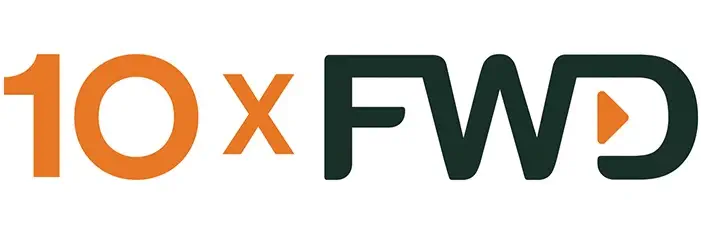
Equity markets retreat following unexpected US credit downgrade, but economy remains resilient
Global stocks pulled back as sentiment turned negative.
Global and Philippine Market Update
July 26 to Aug. 2, 2023
Global Markets
Global Stocks pulled back as sentiment turned negative.
- Fitch Ratings downgraded the US debt from AAA to AA+ in response to the government’s handling of the recent debt crisis. This move was similar to the downgrade by S&P in 2011. The lower credit rating reflects concerns about the expected deterioration in fiscal conditions over the next three years, increasing government debt, and a decline in governance. However, Alec Phillips, chief political economist at Goldman Sachs, pointed out that the downgrade mainly addressed medium-term challenges and does not present new fiscal information. He also mentioned that the downgrade is not likely to have a direct impact on financial markets, and major holders of Treasury securities are unlikely to be forced to sell due to the ratings change.
- Inflation continued to show signs of cooling in June, with the core personal consumption expenditure price index (PCE), which excludes food and energy increased by only 0.2% from the previous month and 4.1% year on year. The annual rate is the lowest since September 2021, indicating a decline in inflationary pressures. This trend suggests that the Federal Reserve (Fed) might hold off on further rate hikes moving forward, as the threat of inflation appears to be subsiding.
- The 2nd quarter saw the US gross domestic product (GDP) grow by a stronger-than-expected rate of 2.4%, surpassing the 2% estimate. The solid quarter was primarily driven by robust consumer spending, along with increases in nonresidential fixed investment, government spending, and inventory growth. The US economy has displayed surprising resilience, despite facing tight monetary policy and persistent predictions of a recession. The strong employment figures and continued support from consumers have contributed to its steady performance.
Philippine Stocks
Philippine Stocks lost momentum as negative global headwinds took over the market.
- Stocks experienced a decline as negative factors from offshore weighed on market sentiment. The unexpected credit downgrade of the US by Fitch, coupled with the Fed’s rate hike and Bank of Japan’s (BOJ) adjustment in its bond yield control, created headwinds that halted the previously building upward momentum in the market.
- Manufacturing activity in the Philippines improved in July as indicated by the Purchasing Manager’s Index (PMI) rising to 51.9 from 50.9 in June. This marks the 18th consecutive month that the PMI has remained above 50, indicating expansion in the sector. According to S&P Global, the expansion can be attributed to a growing customer base and improved underlying demand trends. Additionally, the rate of growth in new export orders reached a three-month high. Encouragingly, nearly half of Philippine manufacturing firms anticipate growth in production over the next 12 months.
Philippine Bonds
Philippine Bond yields remained elevated amid heightened uncertainty caused by the US credit downgrade.
- The Bureau of Treasury (BTr) partially awarded a re-issued treasury bond with a remaining life of four years and seven months at an average rate of 6.337%. This was 0.084% higher than 6.253% rate quoted for a similar bond in the secondary market. This was the second consecutive partial award made by the treasury as it tries to cap the upward climb of rates. Higher global yields may keep local rates elevated but are still expected to trend lower toward the end of the year.
- According to the Bangko Sentral ng Pilipinas (BSP), headline inflation likely settled between 4.1% to 4.9% in July, due to lower electricity rates, a rollback in cooking gas prices, and a stronger peso. If this forecast materializes, it would be the first-time inflation falls below 5% since April 2022’s 4.9% figure. The BSP anticipates further easing of inflation in the coming months. However, potential challenges lie ahead, as an increase in fuel prices at the end of July and elevated prices of key food items like onions and milled rice may disrupt the current downward path.
FWD Guidance: Uncertainty leads to downside risks, but diversification and a long-term investment horizon still provide the best chance for financial success.
Sources: (1) https://www.cnbc.com/2023/07/28/pce-inflation-june-2023-.html (2) https://www.cnbc.com/2023/07/27/gdp-q2-2023-.html (3) https://www.bbc.com/news/business-66379366 (4) https://www.bworldonline.com/top-stories/2023/08/02/537252/phl-factory-activity-perks-up-in-july/ (5) https://www.bworldonline.com/stock-market/2023/07/30/536643/shares-to-move-sideways-ahead-of-inflation-data-3/ (6) https://www.bworldonline.com/top-stories/2023/08/01/536967/central-bank-sees-july-inflation-at-4-1-4-9/ (7) https://business.inquirer.net/413637/govt-raises-p26-6b-from-t-bond-auction
Disclaimer: The purpose of this article is to inform and should not be taken as an advice or offer to purchase securities. Seek professional advice before making a decision based on this presentation. Information given does not represent the views of FWD and its agents and employees.






